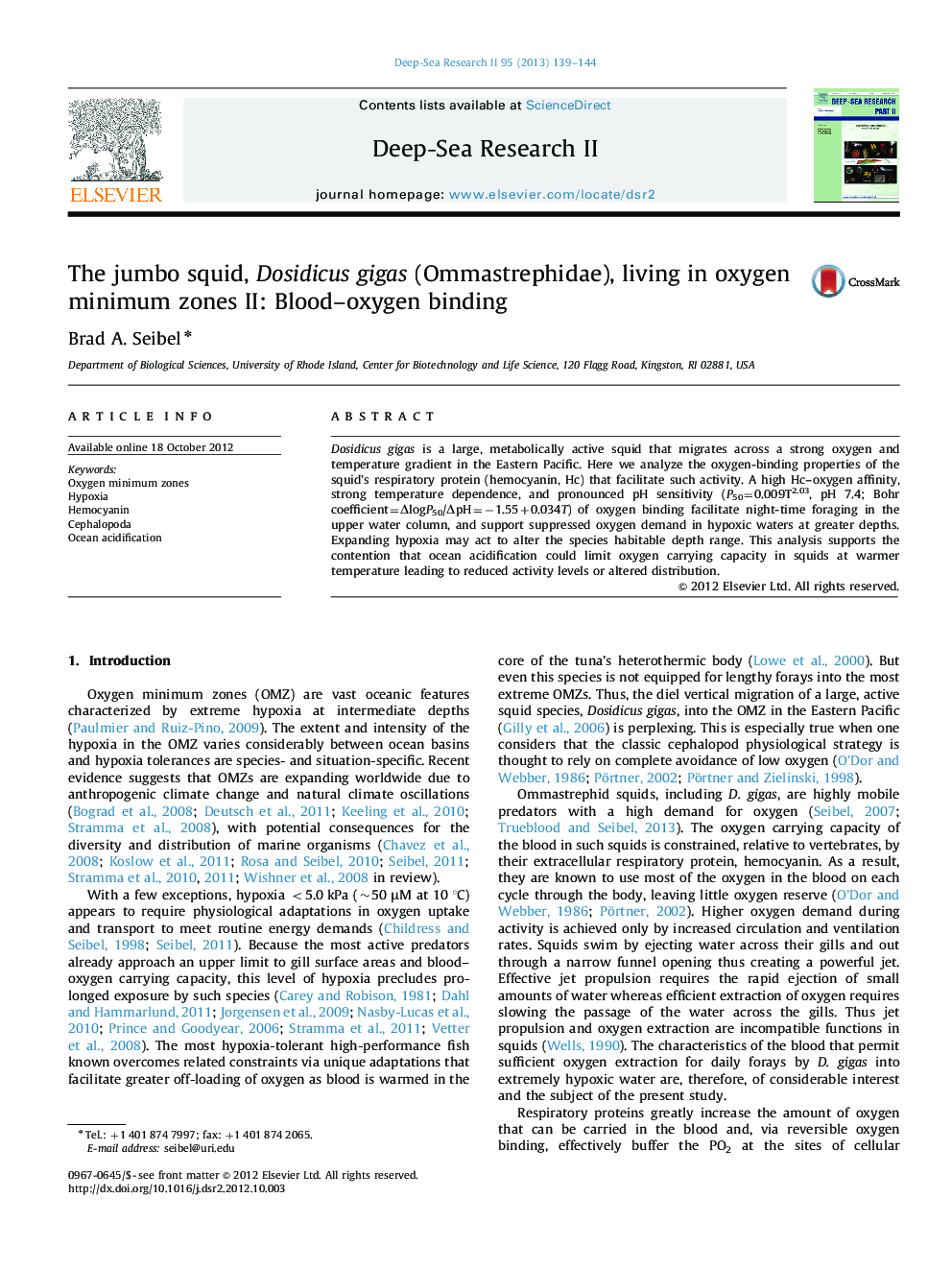| Article ID | Journal | Published Year | Pages | File Type |
|---|---|---|---|---|
| 4536556 | Deep Sea Research Part II: Topical Studies in Oceanography | 2013 | 6 Pages |
Abstract
Dosidicus gigas is a large, metabolically active squid that migrates across a strong oxygen and temperature gradient in the Eastern Pacific. Here we analyze the oxygen-binding properties of the squid's respiratory protein (hemocyanin, Hc) that facilitate such activity. A high Hc-oxygen affinity, strong temperature dependence, and pronounced pH sensitivity (P50=0.009T2.03, pH 7.4; Bohr coefficient=ÎlogP50/ÎpH=â1.55+0.034T) of oxygen binding facilitate night-time foraging in the upper water column, and support suppressed oxygen demand in hypoxic waters at greater depths. Expanding hypoxia may act to alter the species habitable depth range. This analysis supports the contention that ocean acidification could limit oxygen carrying capacity in squids at warmer temperature leading to reduced activity levels or altered distribution.
Related Topics
Physical Sciences and Engineering
Earth and Planetary Sciences
Geology
Authors
Brad A. Seibel,
